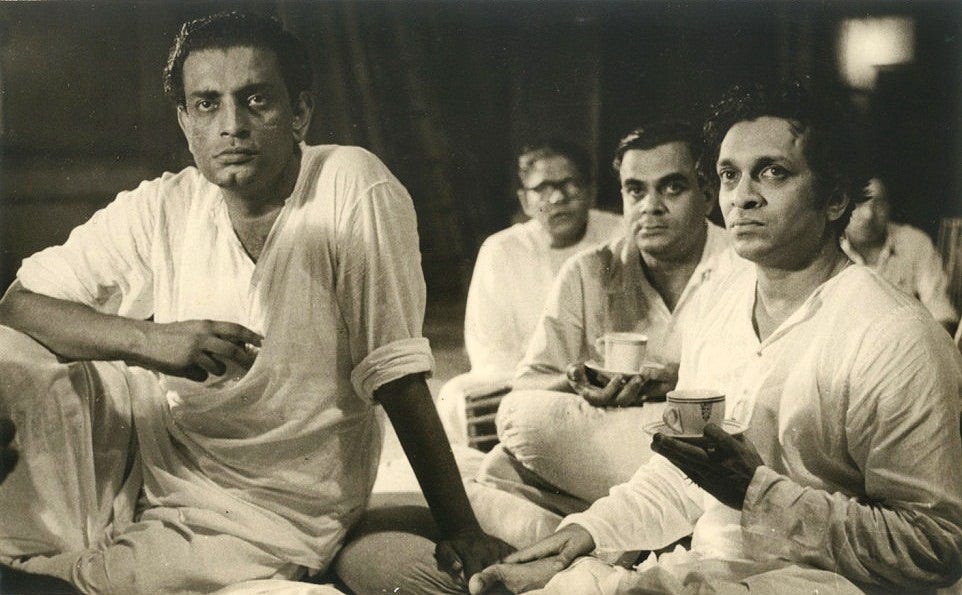#53 The Apu Trilogy, Shatranj ke Khiladi & Satyajit Ray
Ray's magic, the simple poetry of his images and their emotional impact, will always stay with me - Martin Scorsese

Last week, I decided to craft a newsletter centered around the Ancient Travelers who traversed the globe from the 11th century to the 16th century and shared their unique perspectives on India throughout various epochs. Building on that theme, this week, I was eager to finalize and send it out.
However, a cinematic revelation disrupted my plans just last night. I delved into Satyajit Ray's cinematic masterpiece, "Pather Panchali," and the experience was truly mind-blowing. It was like stumbling upon an entirely new cosmos, leaving me mesmerized by the profound storytelling and cultural exploration woven into the fabric of the film. Unable to resist, I proceeded to binge-watch the complete Apu trilogy, comprising Pather Panchali, Aparajito, and the world of Apu. My fascination with Ray's work extended to his contributions to Hindi cinema, particularly "Shatranj ke Khiladi" (The Chess Players) and "Sadgati." Selecting "Shatranj ke Khiladi," I marveled at Ray's meticulous attention to detail and his unique adaptation of Premchand's short story.
Inspired by this revelation, I have decided to shift the focus of my newsletter to the world cinema of Satyajit Ray. To be completely transparent, while I always recognized Ray's genius, I regrettably hadn't had the opportunity to fully appreciate his films until now. Despite glimpses from online clips, the immersive experience of watching an entire Ray film was a revelation. It's a lamentable oversight that I hadn't indulged in the masterpieces of Ray's cinematic repertoire until this captivating encounter last night.
This moment is reminiscent of when I first discovered Martin Scorsese's films after college. There was a period when I couldn't resist watching Scorsese's works. In one of his lectures, Scorsese praised Ray's storytelling prowess, emphasizing the importance of directors interpreting the world visually before sharing it with the audience. According to Scorsese, great filmmakers filter the world through their own artistry, creating a unique lens for viewers to peer into various worlds, whether as vast as a nation or as intimate as apartment.
In this light, I believe Satyajit Ray is a master of this art. Each of his films felt deeply personal; I've lost count of how many times I've shed tears after watching the Apu trilogy. The genuine and heartfelt love portrayed, from Apu's sister Durga in "Pather Panchali" to his mother's longing in "Aparajito," and later from his wife in the world of Apu, is profoundly moving. As I pen these thoughts, there's a sincerity in the emotions that has brought tears to my eyes once again.

